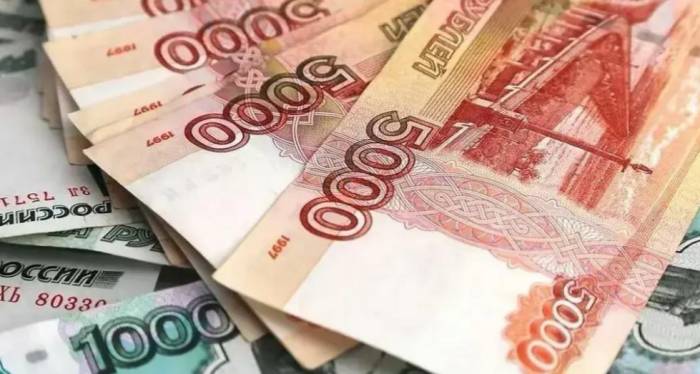BRICS Nations Swiftly Ditch the Rupee!
In recent years, India has been striving to elevate the status of its currency, the rupee, in the global economy. However, the journey has proven to be riddled with obstacles and setbacks, particularly in light of the recent developments regarding the BRICS payment system. Prime Minister Narendra Modi's ambitious aspirations to thrust the rupee into the international arena have faced significant challenges as other currencies, like the Chinese yuan and Russian ruble, maintain a stronghold on the global stage.
The Indian rupee, despite being the currency of one of the world's largest economies, has struggled to carve out a notable place within international financial transactions. This paradoxical situation arises from a myriad of complexities surrounding India's economic landscape. As countries like China and Russia leverage their more stable currencies, the rupee's volatility and limited global acceptance prevent it from gaining traction.
The Indian government has relentlessly pursued the internationalization of the rupee through various initiatives. From devising currency swap agreements with other nations to enhance its usage, progress has been hindered by the rupee's inherent instability and India's constrained foreign exchange reserves. These initiatives, while well-intentioned, have not substantially impacted the rupee's standing in global trade.
Advertisement
Moreover, the BRICS nations—a coalition including Brazil, Russia, India, China, and South Africa—aim to create an alternative payment system that reduces reliance on Western currencies. Indian policymakers envisioned the rupee as a key component of this framework. Unfortunately, the underlying economic disparities between these nations have often relegated the rupee to a marginal role. The yuan and ruble, with their comparatively stable economic environments, dominate discussions on international trade, leaving the rupee to languish on the sidelines.
The limitations of India's economic structure present another formidable hurdle for the rupee. While India boasts a robust IT sector and dynamic service industry, its manufacturing capabilities lag behind. This lack of diversification in high-value exports constrains the potential volume of international transactions conducted in rupees. Consequently, persistent inflation and fiscal deficits further jeopardize the rupee’s viability as a trusted currency for global trade.
The BRICS payment system's design aims to create a new paradigm that lessens dependence on Western financial infrastructures. However, successful implementation hinges on a foundation of relative stability and mutual trust among member currencies. The rupee's perceived instability has often been regarded as a liability, creating apprehension around its acceptance and usage in the BRICS payment ecosystem.
Since taking office, Modi's administration has placed significant emphasis on economic reform as a means to bolster the rupee's international profile. Various policy measures have been enacted to stimulate growth and attract foreign investments; yet, the path to rupee internationalization has been fraught with obstacles that challenge the government's resolve.
Domestic resistance to rapid economic reforms has been palpable, with many initiatives encountering political opposition and public dissent. This pushback has compelled the government to temper its reform ambitions, ultimately slowing progress. Additionally, the changing tides of the global economy, characterized by rising protectionism and the formidable strength of the U.S. dollar, have conspired to introduce further uncertainty into the rupee's international aspirations.
The stark reality for India within the BRICS payment system has been one of disappointment. The country, positioned as the second-largest economy in the group after China, finds itself grappling for relevance in international monetary discourse. The disparity between its economic size and currency standing poses challenging questions for Modi's government regarding the effectiveness of its international strategy.
Cultural and psychological factors also play pivotal roles in shaping India's approach to economic openness and global collaborations. A rising wave of nationalism compels a cautious stance toward foreign influence, resulting in a complicated relationship with open markets and international trade. This dichotomy manifests in currency policies that oscillate between push and pull, crippling the rupee's chances of achieving meaningful international significance.

For India to enhance the rupee's global standing, concerted efforts across various fronts are indispensable. Addressing structural economic weaknesses, fostering consistent policy frameworks, and improving the nation's international image must become paramount objectives. The path to elevating the rupee's status on the world stage will necessitate patience, strategic ingenuity, and steadfast commitment.
In contrast, the global acceptance of the yuan appears to be accelerating with greater ease. The comparative fluidity of the yuan's internationalization serves as a yardstick for India's aspirations and underscores the urgency for reform within the Indian economic framework. Modi's initiative, while encountering immediate setbacks, provides invaluable insights into the complexities of currency internationalization that could benefit not only India but other nations navigating similar dilemmas.
Ultimately, India's journey towards a more prominent place for the rupee in international finance will require a multifaceted strategy involving economic restructuring and a reorientation of public sentiment. As policymakers forge ahead, the lessons learned from recent experiences hold promise for future endeavors in cementing the rupee's role and ensuring a more equitable presence within the realm of global currencies.
Post Comment